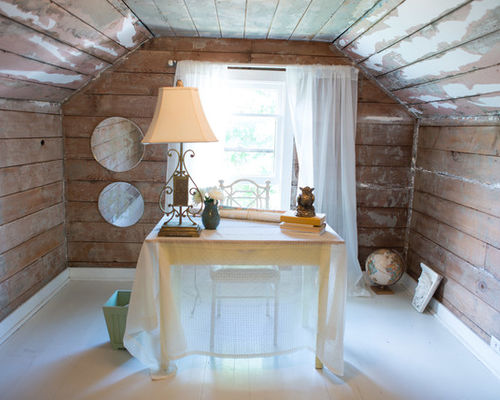Are you feeling stuck?
Perhaps you’ve been meaning to get organized for some time now: Your closets are overflowing — we’re not even going to talk about the garage, and some of you may prefer we pretend basements don’t even exist. You were totally going to get to all of that this summer, and here it is already August! Ugh.
Related: Get It Done With These Basement Storage Hacks
Or maybe you’re organized, but you can’t seem to make any decisions about design —you’re scared of making a mistake. Or perhaps you know you’ve already made mistakes — expensive ones — and you don’t want to make any more.
We all feel stuck and overwhelmed at times. Granted, some of us are more deeply stuck than others, but getting out of a rut is easier than you think. For most of us who struggle with this, the trick is knowing where to start. We feel overwhelmed, and our brains flatline. It’s easier — we think — to ignore everything because we can’t figure out what to do first, so we do nothing and fret.
Here are three things to do when you don’t know what to do.
1. Make a list. When you write down a goal or intention, something happens. It’s not magic, but something shifts. Avoid broad commitments like “1. Get organized.” Be specific. It’s OK if it’s a massive list. You may need to have a couple of lists: one for daily goals and one for everything you need to accomplish in your home and life, and you’ll need to keep adding to it.
You may even have a third list on which you record how you want things to be — your dreams, if you will. This could be broad, but it shouldn’t be vague. When I got really clear about how I wanted my house to be, I wrote, “I want to get down to food, clothes and books.”
What do you want? “Get organized” is vague, but “Create an orderly home so I’m free from constant stress and anxiety” is clear.
Or maybe your list will include things you would like to purchase or renovate. I need to write this on mine: “Living room rug, probably wool, dark enough and with some ‘movement’ so I can go more than five minutes between vacuuming dog fur.” Then see what happens.
I know this may sound overwhelming, but it’s freeing once you get going. All of these things are bouncing around your head, whether or not you know it. Once you write them down, a tension is released, energy is marshaled and a plan begins to form.
It doesn’t seem like much, but you’ve made a start. Making a list is doing something.
Related: Cross Office Organization Off Your To-Do List With These Desk Accessories

2. Ask for help. To start, just acknowledge you need help. Some things we can’t do alone, for whatever reason, and rather than beat yourself up, start looking around for support.
Years ago I was drowning in laundry and scheming how I could hire it out when I realized my two older children were more than capable of doing their own. Today all five members of my family do the laundry, and it’s no big deal. I am Not Naturally Organized with three kids at home, and laundry isn’t a hassle. This is practically a miracle. Now if I could just apply this to meal planning and cooking — hey, now!
Related: Functional Laundry Room Decor and Organization Ideas
What is it you don’t think you can do on your own? And I don’t want to hear, “I can’t afford to hire anyone, and I don’t have family nearby” or “I don’t even know where to look!” These are perfectly valid, but you don’t have to solve the problem or even list all the reasons why you can’t get help; you just need to ask for it.
Maybe write it on the bottom of your list: “Help.” Even that is asking for it.

3. Set a small goal. Ask yourself, “What can I do today?” What you do doesn’t need to be big. It could actually be quite small, but making a concrete and achievable goal is great progress.
You may need help figuring this out. When I have a lot on my plate and my brain starts to hurt, I ask my husband, Paul, to help me figure out what to do next. Just telling him what’s going on usually helps me figure out my priorities on my own without his advice.
Always take into account the season, all of your other commitments and your health, and then make a reasonable goal. Remember, small, incremental changes add up.
Original article written by Alison Hodgson on Houzz


